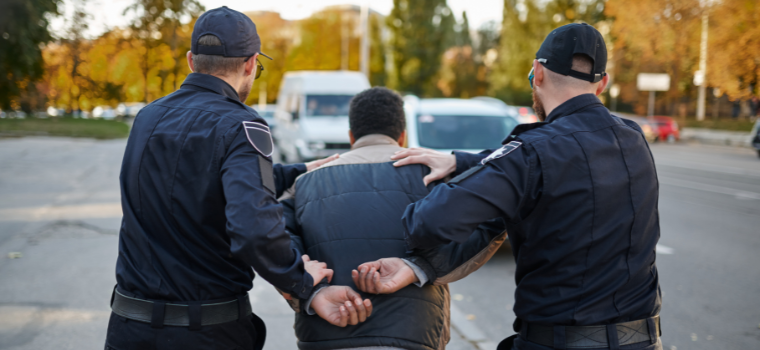The terms “arrested” and “detained” are often used interchangeably, but they carry distinct meanings and implications. Understanding the difference between being arrested and being detained is crucial for individuals to know their rights and navigate encounters with law enforcement effectively. Let’s delve into the nuances of these two terms.
Arrested vs. Detained
Being arrested involves the formal taking of an individual into custody by law enforcement officials. When someone is arrested, they are deprived of their freedom and are typically transported to a police station or detention center for booking. An arrest usually occurs when there is probable cause to believe that the individual has committed a crime. During an arrest, law enforcement officers must read the individual their Miranda rights, informing them of the right to remain silent and the right to legal representation.
Detention, on the other hand, refers to a temporary and brief holding of an individual by law enforcement for questioning or investigation purposes. Unlike an arrest, detention does not necessarily signify that the individual is suspected of committing a crime. Law enforcement officers can detain someone if they have reasonable suspicion that the person may be involved in criminal activity or if they need to verify their identity. Detentions are meant to be brief and should not result in prolonged deprivation of liberty without proper justification.
Read Now: Rights Police Don’t Want You to Know
Key Differences
- Legal Status: When someone is arrested, they are formally taken into custody and charged with a crime. Detention is a temporary holding for investigative purposes without formal charges.
- Duration: An arrest typically leads to longer periods of custody, while detention is meant to be brief and limited.
- Rights: Individuals who are arrested have specific legal rights, such as the right to legal representation and the right to remain silent. Detained individuals also have rights, including the right to know the reason for detention and the right to be released promptly if no charges are filed.
How an Attorney Can Help
In both situations of being arrested or detained, seeking legal representation is essential to protect one’s rights and navigate the legal process effectively. A qualified lawyer can provide the following assistance:
Legal Advice
One of the most critical roles of a lawyer when you are arrested or detained is to provide legal advice tailored to your specific situation. This includes explaining your legal rights and options based on the circumstances of your arrest or detention. A knowledgeable attorney can clarify complex legal concepts, such as Miranda rights, probable cause, and the legal implications of your interactions with law enforcement. Understanding your rights empowers you to make informed decisions and protect yourself during questioning or legal proceedings.
Representation
A lawyer serves as your advocate throughout the arrest or detention process. They can intervene on your behalf during questioning by law enforcement officers to ensure fair treatment and protect your constitutional rights. If charges are filed or if you are brought before a court, your criminal defense attorney will represent you in legal proceedings, presenting your case persuasively and advocating for the best possible outcome. Having legal representation can significantly impact the course of your case and safeguard your interests in the face of criminal accusations.
Investigation
In response to an arrest or detention, a skilled attorney will conduct a thorough investigation into the circumstances surrounding your case. This may involve gathering evidence, interviewing witnesses, and examining the legality of the arrest or detention procedures. The goal of the investigation is to uncover any factors that could support your legal defense, challenge the legality of law enforcement actions, or identify mitigating circumstances that may affect the outcome of your case. A comprehensive investigation strengthens your defense strategy and enables your lawyer to make informed legal arguments on your behalf.
Defense Strategy
Based on the findings of the investigation and a detailed assessment of your case, your lawyer will develop a strategic defense plan. This may involve challenging the validity of evidence, seeking to suppress unlawfully obtained statements or confessions, or arguing for dismissal of charges based on procedural errors or constitutional violations. Your lawyer will craft a defense strategy tailored to your specific circumstances and legal objectives, aiming to achieve the best possible outcome, such as acquittal, reduced charges, or alternative sentencing options.
Contact Seth Kretzer for Experienced Legal Representation
If you or a loved one is facing arrest, detention, or criminal charges, don’t hesitate to seek experienced legal representation. Seth Kretzer is a dedicated attorney with a proven track record of defending clients’ rights and achieving favorable outcomes in complex legal cases.
Contact our firm today to schedule a consultation and discuss your case. Our compassionate legal team is committed to providing personalized attention and strategic advocacy tailored to your specific needs. Let us help you navigate the legal process with confidence and protect your rights under the law.




